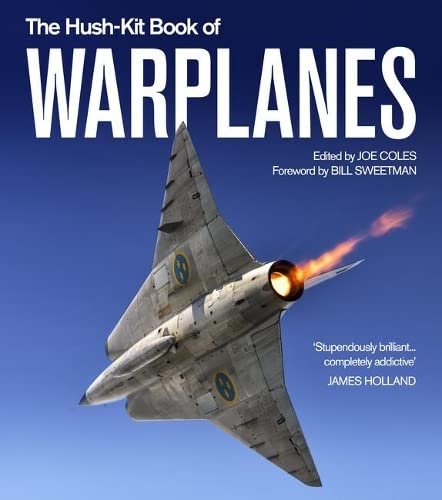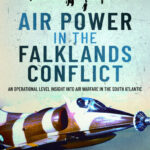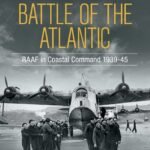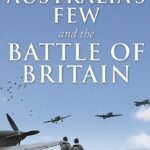
A definite Australian flavour this time, from the Empire Air Training Scheme (as the British Commonwealth Air Training Plan usually isn’t known as) to whatever happened after the Empire Air Training Scheme. Plus the book of a certain aviation history blog (remember blogs? Me neither).
Tony James Brady. The Empire Has An Answer: The Empire Air Training Scheme as Reported in the Australian Press 1939-1945. Newport: Big Sky Publishing, 2019. Big Sky would have to be the most prominent and prolific publisher of Australian aviation history at the moment. Not that this is a particularly competitive market, of course, but it’s been great to see the results of their relationship with the RAAF History and Heritage Branch pop up in local bookshops in amongst the seemingly endless array of histories of Australian Army units and campaigns (which Big Sky also publish, incidentally). I think this is one of the earlier co-ventures. I remember when it came out that Brady’s extensive use of historical newspaper articles (duly credited to Trove) to write a history of the Empire Air Training Scheme caused some head-scratching, which as a heavy user of historical newspaper articles myself I rather discounted. But I now have to say that I’m not entirely sold on the way these sources have been relied upon so heavily for to provide narrative details of organisation, logistics, politics, strategy… in fact all the kinds of things of which the wartime press are unlikely to have the full gen. I think you can still use the press for this kind of thing, but either as an adjunct to archival and/or secondary sources, or to provide the way these topics were presented to the public (through whatever lens you like; propaganda is the obvious one), or both for that matter. The Empire Has An Answer does do some of this, but not often and not consistently, so I found it a little hard to engage with. Still, there’s a lot of interesting material here, and Brady has certainly shown the value of Trove for military history. And it’s always easier to tell somebody else how they should write a book than to write your own!
Joe Coles, ed. The Hush-Kit Book of Warplanes. London: Unbound, 2022. If you’ve read the blog, you’ll know what to expect, and you will almost certainly want to read this. Lots of gorgeous illustrations, obscure facts, Blackburn bashing, and highly questionable judgment calls (which of course is half the fun). While it does start with 1914-18, it might be a bit heavy on the jets for some — certainly the aircrew interviews skew that way (rather unavoidably, given that they are original rather than canned). My only real complaint was that a glossary would have helped with some of the air force jargon and acronyms, but then that’s what Google is for. Roll on Volume 2!
Alan Stephens. Going Solo: The Royal Australian Air Force, 1946-1971. Canberra: AGPS Press, 1995. It’s difficult to say how many official histories of the RAAF there have been (do you start with the AFC? Do the ‘air’ volumes of the Second World War Official History count as one or four?) but it’s clearer if you ignore the World Wars: there’s Coulthard-Clark for 1921-39, Lax for 1972-1996, and, here, Stephens in the middle for 1946-1971. (Hmm, 27 years since Lax… must be time for a new official history?) And this is everything you want in an official history: musterings, base acquisitions and disposals, stores, the fate of the Air Board — okay, I don’t expect that everyone will find this as fascinating as I did, but if you need to know this stuff, here it is. And there is more: not only was the RAAF at war (or in warlike operations) for most of this period, there’s the fall-out of the pre- and wartime rivalries at the highest level of RAAF command (and for an official historian Stephens is refreshingly ready to criticise even the most senior of officers), the baffingly disdainful (and ultimately self-defeating) response to Army needs for aviation support in the Vietnam era, and the amazingly cavalier way in which the decision to (ultimately) buy the F-111 came about. And one day I’ll have to look into the panic over Arthur Caldwell’s 1963 claim that the Indonesian air force could destroy any Australian city…
![]() This work is licensed under a Creative Commons Attribution-NonCommercial-NoDerivatives 4.0 International License.
Permissions beyond the scope of this license may be available at http://airminded.org/copyright/.
This work is licensed under a Creative Commons Attribution-NonCommercial-NoDerivatives 4.0 International License.
Permissions beyond the scope of this license may be available at http://airminded.org/copyright/.






By my count, if you include Cutlack’s volume, nine official histories deal with the RAAF.
However, they need to be treated differently. First, Cutlack isn’t really about the RAAF, but the Australian Flying Corps and one does not directly lead to the other. Five volumes are official histories in that they are produced under the auspicious of the AWM – the four WW2 volumes and Coulthard-Clark’s Vietnam volume. You then have the three RAAF official histories, i.e., those sponsored by the Air Force itself. I think these need to be treated as distinct from other efforts.
Interestingly, Mark Lax, in his recent OH of the RAAF, described his volume as the seventh. Even if you exclude Cutlack, that still leaves you one short; he ignored the Vietnam volume.
There is no RAAF volume in the current OHs written for East Timor, Afghanistan and Iraq, as the volumes treat the operation from a joint perspective.
See, this is what I mean! I don’t think I’d even clocked the existence of Coulthard-Clark’s Vietnam book. (I see that Stephens does cite it in his bibliography but not in the Vietnam chapter itself.)
If you do include Cutlack, what about Michael Molkentin’s Australia and the War in the Air (2014), funded by the Australian Army? (Quelle horreur!)
Oh, and for that matter, there’s Alan Stephens, The Royal Australian Air Force (2001), part of the Australian Centenary History of Defence, funded by the Department of Defence…
It is an interesting point, Brett. However, I would describe them as quasi-official histories, in part because of how they have been funded. Nonetheless, it does beg the question of how we define official history…
Gday to you both- it’s been far too long. This is an interesting discussion because it highlights the ambiguities and nuances within the notion of “official history”. My working definition for official history doesn’t just include funding but also privileged (usually early/first) access to records. Cuttack and the Second World War Historians had this but most of the others cited here did not, as far as I know. I didn’t for my Army-sponsored volume: everything I looked at was in public archives or was privately held (but in these cases I was granted permission independent of Army’s influence). I’ve actually never considered it official history but maybe it could be described as semi- or quasi- official because some of the research and publication costs were covered by Army. It had no editorial influence on my book whatsoever though.
I agree, Michael. There is no clear definition of an official history beyond being commissioned by an organisation – is that enough? They can obviously either be commissioned by the government, in the case of Cutlack, Herington, Odgers, Gillison and Coulthard-Clark, or by the RAAF, in the case of Coulthard-Clark, Stephens and Lax. Interestingly, Lax sees a continuity between his work and those produced under the auspicious of the AWM. I wouldn’t have agreed with that assertion anyway but your comment reference access to sources raises more questions.
Hi Brett
Thanks for the review, it is always appreciated. I only came across this today, so a little late in responding.
You are correct in that my book was the first RAAF H&H/BSP collaboration, it was also my first book and my first foray into military or aviation history.
My intent, and I feel I achieved it to a good degree, was to document the purpose, size, and contribution made by the EATS, and to make it accessible to as wide an audience as possible.
That said, it began as one project and was completed as another. Prior to the participation of H&H, under Air Force, the book languished in bureaucracy before being sent to a want-to-be editor who removed all of my styling and references. This was heartbreaking and nearly had me drop all involvement. RAAF H&H, then took its current state and things improved.
Is it the book I wanted, probably not, does it have a place in RAAF history, hopefully, but ultimately I am happy to have produced the book and hope it gets many more readers.
Thanks again for reading and for taking the time to review.
Kind regards
Tony
Ross, Michael:
You’re right, the question of editorial influence and, to a lesser extent, access to sources does determine whether these are ‘officially’ official histories or not; and Michael, yours was clearly not official in the same way as the WWI/WW2 official histories. More generally, perhaps we can say that the RAAF, for example, is now trying influence (in a largely benign way, I’m sure) the sorts of topics that get written about it, and of course encouraging historians to write about it full stop.
Tony:
Thanks for taking my mini-review in good humour! As I’m currently writing a book myself, I’m finding it’s making me both more critical when I read the work of other authors (to see what works and doesn’t work, from my point of view) but also more understanding (it’s easy to sit on the sidelines and say, well, the book should have included this topic or been structured like this, but the course of writing and editing in itself makes some choices possible and rules others out, and in the end you have to get the bloody thing out the door). So I absolutely feel your pain regarding the way your book was handled! And we need more diversity of sources and approaches, so I do think it’s a valuable contribution to RAAF history.
Brett
As they say, ‘ any press is good press’. But seriously, just happy you read my book carefully enough to make comment.
I hope your book goes well and I look forward to adding it to my collection.
Tony